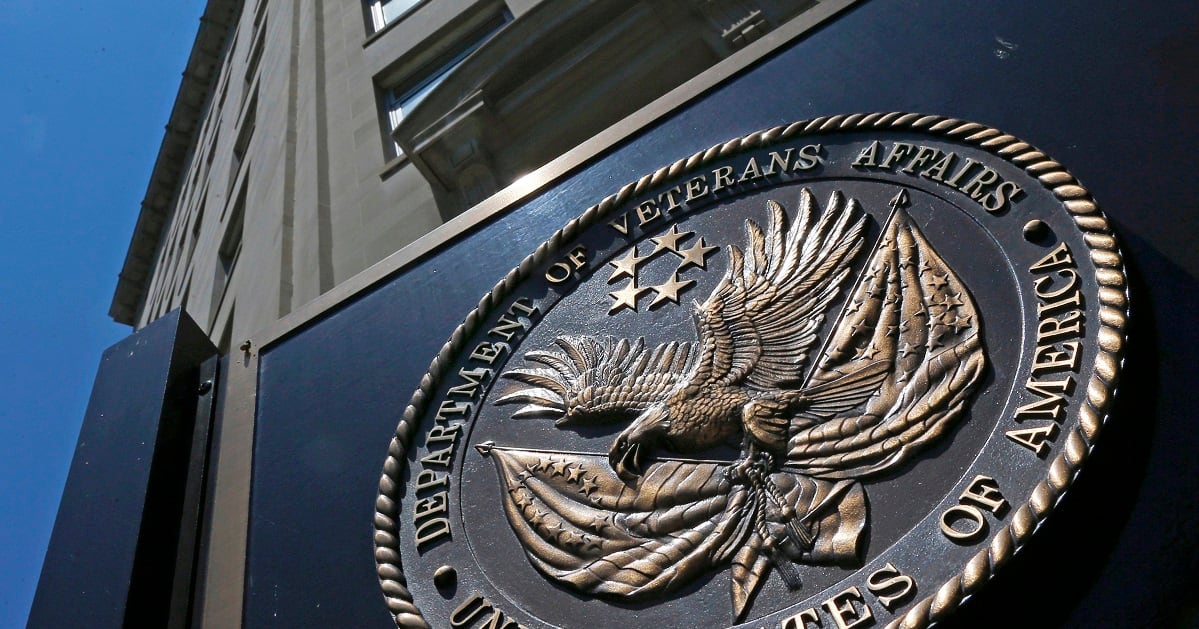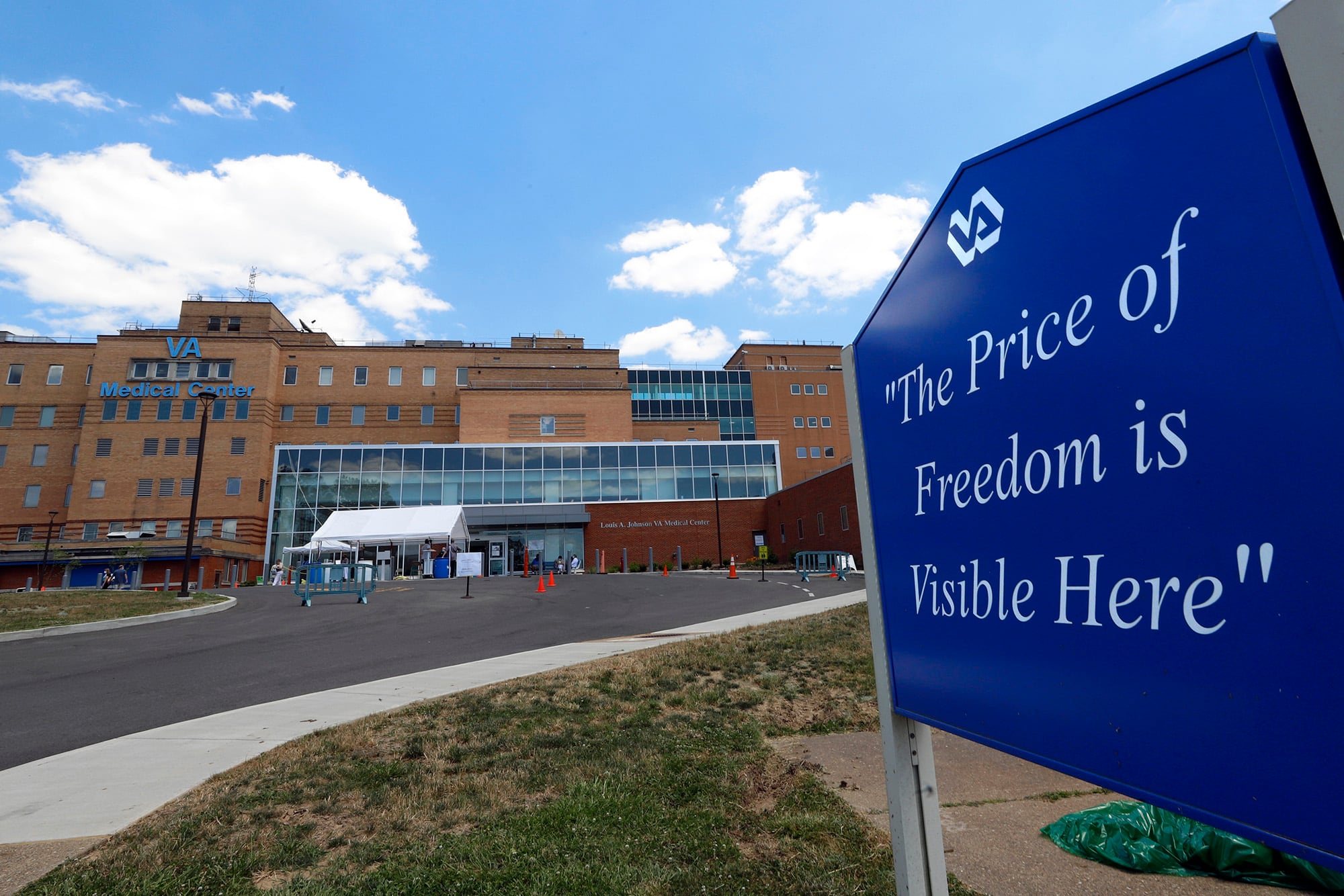Before former Veterans Affairs nursing assistant Reta Mays to life in prison for murdering patients at a West Virginia VA hospital, U.S. District Court Judge Thomas Kleeh blasted her as a “monster,” a calculated killer who used available opportunities to commit “evil” against elderly, infirm veterans.
But while he emphasized the intent behind the crimes falls solely on her, he also noted that VA officials aren’t blameless in the tragedy.
“The VA is responsible for its own institutional failures here,” he said. “They have and will continue to pay for their problems.”
Mays started her seven life sentences in prison on Tuesday, the end of a three-year legal saga which brought new pain and only partial closure to the families of the victims.
The department’s reckoning after the discovery of a serial killer in their midst, however, will likely continue for years. VA leaders are still processing what mistakes were made over a 12-month period which allowed Mays continued access to vulnerable patients and the insulin injections she used to murder them, and how to prevent similar actions in the future.
RELATED

“There is no excuse for this imposter to have been able to do what she did for as long as she did,” said Tony O’Dell, an attorney representing 11 families whose loved ones were possibly abused by Mays during her time at VA.
“Reta Mays got what she deserved: no mercy, which is exactly what she showed each of her victims. However, missing from today’s hearing are the many families who lost loved ones on that [hospital] floor which still do not have answers.”
Problems at Clarksburg
In a 100-page report released this week, a VA watchdog found “serious pervasive and deep-rooted clinical and administrative deficiencies” at the Louis A. Johnson Veterans Affairs Medical Center in Clarksburg, West Virginia.
But Inspector General Michael Missal said he hopes department officials don’t view the findings as isolated issues at one problematic site.
“[This report] is really for every medical center director to look at and see whether or not they have the same problems,” he said. “Hopefully it can be used as lessons that other facilities should be focused on.”
Among the more damning findings:
— Facility hiring officials did not complete some background checks on Mays which would have shown previous allegations of excessive force while she worked as a prison security officer. “They may have not even hired her,” Missal said.
— Medication rooms and carts were not carefully monitored by hospital staff, “giving [Mays] unauthorized access to the insulin used in these deaths.”
— Clinical evaluations of the insulin overdoses were “lacking.” Julie Kroviak, deputy assistant IG for healthcare inspection, said that officials “had opportunities to use their data in a way that could have prevented cases.”
Overall, Missal said, medical center leadership failed to see a pattern of problems in large part because of poor communication among staff.
“For good, quality medicine, you would have huddles and be talking about patient outcomes,” he said. “We didn’t really see that here. Physicians and nurses, it was more talking about administrative issues, things like when somebody was set to be discharged as opposed to really getting into [issues] they saw.”
RELATED

Beyond West Virginia
Those types of issues have haunted the department for the last seven years, when then-VA Secretary Eric Shinseki was forced to resign following a department-wide wait time scandal which found some medical center administrators more focused on meeting patient quotas than meeting their health needs.
Officials across three separate White House administrations have worked to rehabilitate that image and correct those kids of cultural problems.
In 2018, then-VA Secretary David Shulkin forced the retirement of two regional directors and reorganized several regional offices in an effort to correct serious procurement and safety issues across numerous medical center campuses.
Whether the West Virginia tragedy prompts similar changes remains to be seen.
In a statement, VA spokesman Terrence Hayes praised law enforcement for their work on the case (outside officials repeatedly said that VA was fully cooperative in the criminal investigation) and promised they are working to enact reforms in response.
“What happened at the Louis A. Johnson VA Medical Center was devastating and heartbreaking, and we want to assure veterans and families that we are determined to rebuild their trust and reassure them that this will not happen again,” he said.
VA leaders did fire or reassign several staffers in the wake of revelations about the deaths, including former medical center director Glenn Snider Jr.
Following the latest report, the department said the regional chief medical officer will “assess the results and conduct appropriate follow up for any cases that resulted in the standard of care not being met. Appropriate corrective action will be taken if necessary.”
The IG report listed 15 security and safety recommendations for the West Virginia site, all of which VA says will be put in place by mid-2022.
But wider reforms across VA have been scarcer.
Officials said they are “evaluating the storage and security of high-alert medications and reviewing the use of a rescue medication flagging system to evaluate unexplained adverse patient events” for all hospitals.
They are also looking into more complex data collection and reporting, with the goal of establishing automated systems to allow “notification of potential mortality and safety triggers.” Health officials said insulin overdoses are unusual, and have questioned why multiple cases in a single VA hospital ward did not raise concerns earlier.
In response to the failed hiring background checks for Mays, VA officials said the department has made “significant strides since 2018 to establish consistent standards for personnel security and in ensuring that work related to vetting applications for suitability of employment is properly resourced.”
RELATED

Ongoing issues
Mays was sentenced for second-degree murder in the deaths of seven patients and attempted murder in the death of an eighth. But her incarceration doesn’t fully close VA’s legal issues in the case.
At least six of the families have settled wrongful death lawsuits against VA (Kleeh said at a cost of more than $5 million to the department so far) but O’Dell said at least five other families still have pending cases.
Members of Congress have also promised increased oversight on the issues brought up in the IG report.
“The last several years have been incredibly painful for families and loved ones of the veterans murdered at the Clarksburg VA medical center,” Sen. Joe Manchin, D-W.Va., said in a statement this week. “Now it is time to ensure the negligence we saw in Clarksburg never happens again and to hold those accountable who looked the other way while this happened.
“The quality of care our veterans receive at West Virginia VA medical centers and VA facilities across the nation is of the utmost importance, and I am determined to ensure every veteran has access to the safe, quality healthcare they deserve.”
Any of those potential reforms will take place with Mays behind bars. Kleeh ordered her seven life sentences to be served consecutively, with no opportunity for parole.
“In the significant investigation that was conducted … with respect to the failings at the VA medical center in Clarksburg, there was a [nurse] who was interviewed talking about how insulin was just laying on top of medical carts,” the judge said. “It was obviously a problem, and created the opportunity for something bad to happen.
“No one could have envisioned something as horrific as this.”
Leo covers Congress, Veterans Affairs and the White House for Military Times. He has covered Washington, D.C. since 2004, focusing on military personnel and veterans policies. His work has earned numerous honors, including a 2009 Polk award, a 2010 National Headliner Award, the IAVA Leadership in Journalism award and the VFW News Media award.





